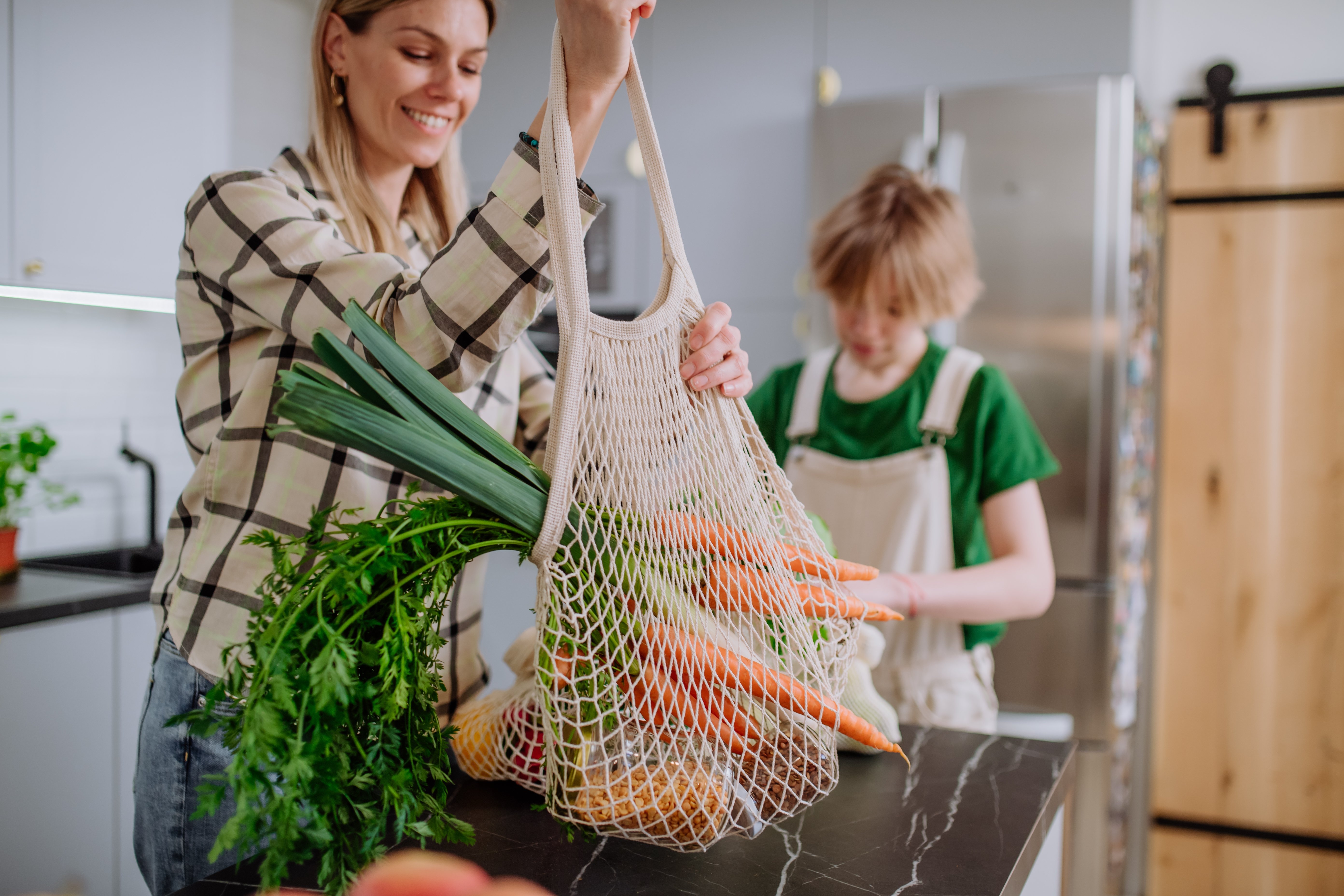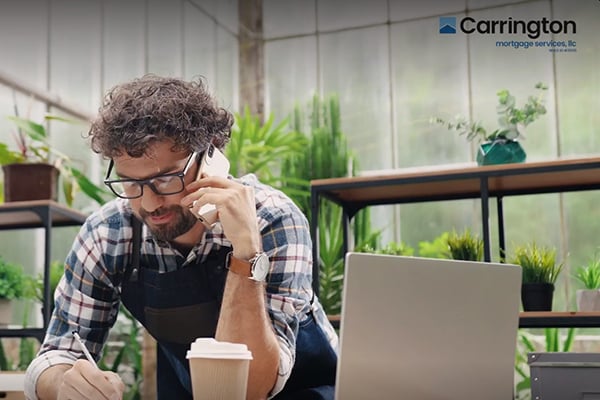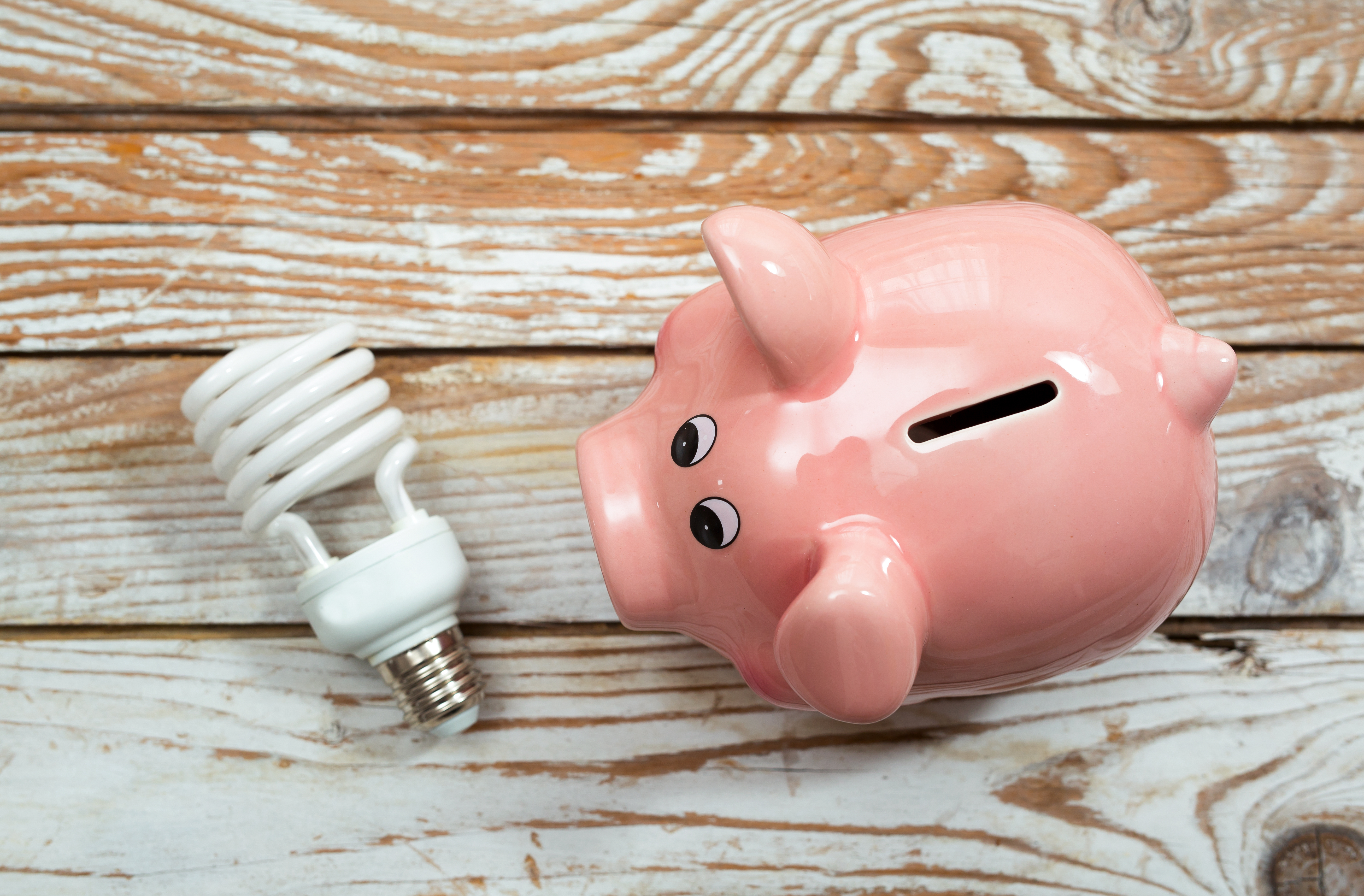Sustainable Living at Home

Making small changes within living spaces can have a significant impact on reducing our carbon footprint. Here are some practical tips on incorporating sustainability into your home.
Go Paperless!
With Carrington’s Go Paperless program, you don’t need to wait for access to important account documents and statements to arrive in the mail. Instead, they’re ready for instant access on our secure website where you can view and/or download. These paperless statements contain the exact same information your paper statement would—but now immediately at your fingertips!
Paperless statements are a simple way of managing your account without the hassle of waiting for them in the mail or having a buildup in your files at home. You can update your preferences at any time by following these steps:
- Log in to your account at CarringtonMortgage.com
- Click Manage Alerts in the top menu
- Click the green Go Paperless icon on the left side of your screen
Energy Saving Appliances and Lightbulbs
Investing in energy-efficient appliances and LED lightbulbs is a proactive step towards reducing energy consumption and lowering utility bills. Energy Star-rated appliances consume less energy compared to their traditional counterparts, while LED lightbulbs use significantly less electricity and have a longer lifespan. Consider replacing outdated appliances and incandescent bulbs with these eco-friendly alternatives to make your home more energy efficient.
Energy Efficient Windows
Windows are an important component of your home's energy efficiency. Upgrading to energy-efficient windows can prevent heat loss during the winter and minimize heat gain during the summer, reducing the need for excessive heating and cooling. Look for windows with low-emissivity (low-E) coatings and double or triple-pane glass to improve insulation and maximize energy savings. Additionally, consider installing window treatments like blinds or curtains to further enhance energy efficiency.
Compost and Gardening
Creating a composting system at home not only reduces waste sent to landfills, but also produces nutrient-rich soil for gardening. Collect organic waste such as fruit and vegetable scraps, coffee grounds and yard trimmings in a compost bin or pile. Over time, these materials will decompose into compost, which can be used to enrich soil and nourish plants in your garden. Embracing organic gardening practices, such as using natural fertilizers and avoiding chemical pesticides, promotes biodiversity and fosters a healthier ecosystem within your backyard.
Watering Schedule
Efficient water usage is essential for sustainable living, especially in regions prone to droughts or water scarcity. Regularly inspecting and adjusting your sprinkler system's watering schedule can help minimize water waste and ensure that your lawn and garden receive just the right amount of hydration.
Consider installing a smart irrigation controller, which uses weather data and soil moisture sensors to optimize watering times and reduce unnecessary water usage. Additionally, incorporate drought-resistant plants into your landscaping to further conserve water resources.
Integrating sustainability into your home is a rewarding endeavor that benefits both the environment and your household. By implementing energy-efficient practices, embracing composting and gardening and optimizing water usage, you can contribute to a greener and more sustainable future.


